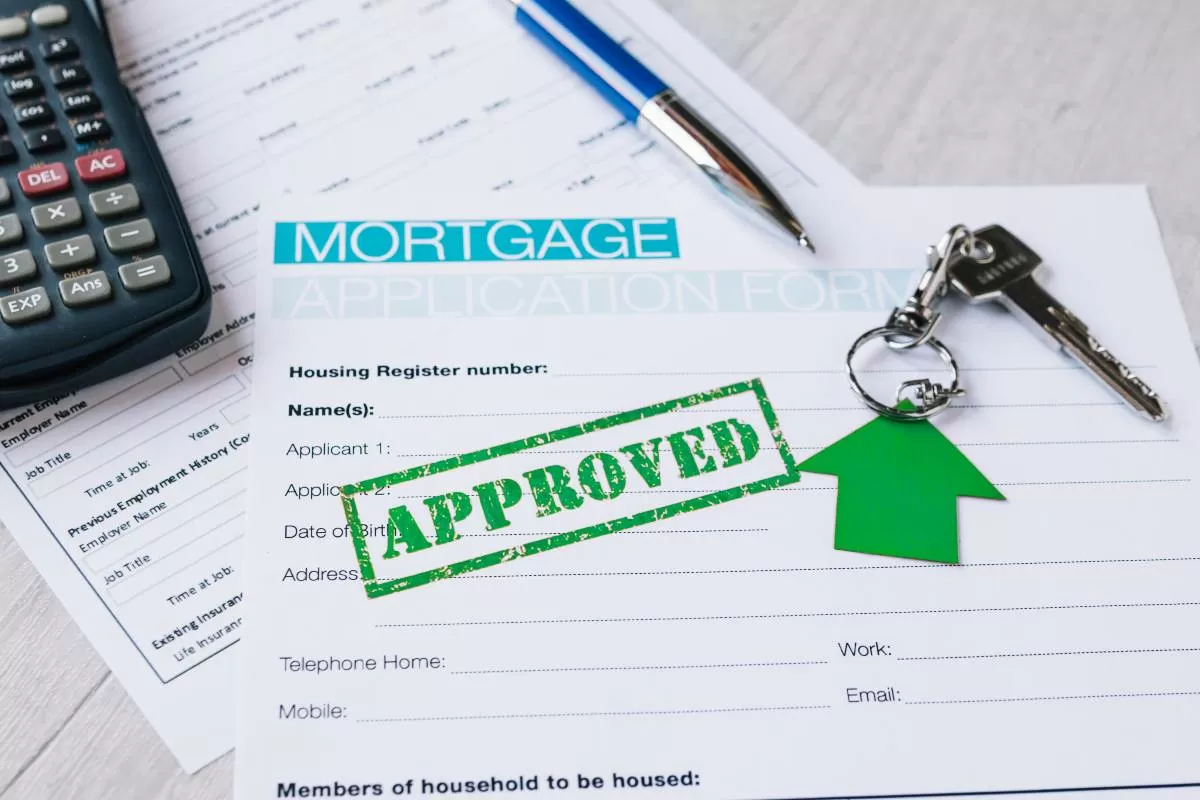In today’s competitive property landscape, particularly across bustling urban centres and desirable towns in the UK, sealed bids are fast becoming the go-to strategy for sellers dealing with multiple interested buyers. For potential homeowners and investors alike, understanding how sealed bids work — and how to use them to your advantage — can help you decide between landing your dream property or missing out.
This comprehensive guide explores the sealed bidding process from every angle, arming you with expert strategies, practical insights, and the clarity needed to make smart, confident decisions. Whether you’re a first-time buyer or looking to expand your portfolio, this article delivers the in-depth knowledge and actionable guidance you need to succeed.
What Are Sealed Bids in UK Property Transactions?
A sealed bid is a method of submitting an offer for a property without knowledge of competing offers. Unlike traditional negotiation, where offers may go back and forth, sealed bids are typically final, with all offers submitted confidentially by a set deadline.
While the process is sometimes associated with premium or in-demand properties, sealed bids are used across the market — from modest family homes to high-end developments — especially in areas where demand outstrips supply.
How Sealed Bids Work:
- Invitation to Bid: The estate agent informs all interested buyers that sealed bids are being invited.
- Bid Deadline: A strict submission deadline is communicated.
- Submission Format: Offers with supporting documentation are submitted via a letter or email.
- Evaluation: The seller and their agent review all bids after the deadline.
- Decision: The seller chooses the most favourable offer, which may not be the highest.
Why Sellers Use Sealed Bids
Sealed bidding creates a level playing field for buyers and encourages serious offers. For sellers, it often means:
- A faster sales process
- Less time wasted with lowball offers
- Potential to drive up prices in competitive scenarios
It’s also a way to reduce prolonged negotiations and identify the most committed buyers.
What to Include in a Sealed Bid Offer
Your sealed bid letter is more than just a number on paper. It’s your chance to show the seller you’re serious, prepared, and flexible. A winning offer will typically include:
- Your best offer: A precise figure based on careful market analysis
- Proof of funds: If you’re a cash buyer
- Mortgage in principle: If you’re financing the purchase
- Preferred completion date: Ideally aligned with the seller’s needs
- Any conditions: For example, whether the offer is subject to survey
- A personal touch: Some buyers add a cover letter to explain why they love the home
Does the Highest Bid Always Win?
Not necessarily. Many sellers consider:
- Financial readiness (cash buyer vs mortgage)
- Chain status (chain-free buyers are more appealing)
- Completion flexibility
- Conditions attached to the bid
- Reliability and communication via the estate agent
In competitive markets, certainty often trumps value. A slightly lower offer without complications can be more attractive than a high bid with strings attached.
 Mastering sealed bids leads to property success.
Mastering sealed bids leads to property success.
Step-by-Step Guide to the Sealed Bid Process
Here’s how to navigate the sealed bidding journey from start to finish:
1. Register Your Interest Early
Expressing your interest in the property early gives you time to arrange viewings, survey it, and arrange your finances.
2. Clarify the Process with the Agent
Get clear guidance on:
- The exact deadline
- Accepted submission formats
- Required Documentation
- Whether the seller is accepting pre-bid offers
3. Research the Property and Local Market
Do not bid blind. Gather intel:
- Recent sold prices in the area (via Land Registry, Rightmove, Zoopla)
- Property condition (structural concerns, dampness, repairs needed)
- Neighbourhood trends and amenities
4. Set Your Maximum Offer
Determine your ceiling price based on budget, market value, and risk tolerance. Be prepared to walk away.
5. Submit a Clean, Complete Bid
Include all documents and details. Avoid overcomplicating your offer with unnecessary conditions.
6. Stay Ready to Negotiate
Some agents may revert to top bidders for clarification or second-round offers even after the deadline.
10 Proven Tips to Strengthen Your Sealed Bid
- Use a professional buyer’s Agent: They bring negotiation expertise and market insight.
- Be chain-free if possible, Or show how quickly your sale can proceed.
- Include a solicitor letter: Demonstrating legal readiness boosts confidence.
- Offer a flexible completion date: Align with the seller’s preferred move-out timeline.
- Avoid conditional offers: Keep it simple and attractive.
- Submit just before the deadline: Avoid looking rushed or overly eager.
- Include an escalation clause (if allowed): e.g., “We will beat the highest bid by £1,000 up to £X.”
- Present your finances clearly: Show you’re financially solid and prepared.
- Follow every instruction: Even minor oversights can ruin your chances.
- Add a personal letter (optional): Emotional connection can be subtle but powerful.
Understanding the Seller’s Perspective
Successful bidding isn’t just about price. Sellers value simplicity, certainty, and reliability. You improve your odds when you show that:
- You’re ready to move forward without delays
- Your financing is secure
- You understand the process and are respectful of their timeline
A personal touch can go a long way if the seller is emotionally attached to the home. A brief, genuine note about why you love the home can be persuasive.
Common Pitfalls to Avoid
- Guessing market value: Use data, not emotion.
- Submitting an incomplete bid: Ensure every requested detail is included.
- Failing to verify mortgage or funds: These must be evidenced.
- Underestimating competition: If the home is in demand, expect multiple bids.
- Ignoring the property’s issues: Factor in renovation or repair costs.
- Assuming you’ll get a second chance: Often, you won’t.
Legal & Financial Considerations
 Submitting a sealed bid to buy a home in the UK
Submitting a sealed bid to buy a home in the UK
Is a Sealed Bid Legally Binding?
No — offers submitted via sealed bids are not legally binding. Only the exchange of contracts creates a legal obligation.
However, withdrawing without good reason can damage your reputation with estate agents and complicate future dealings.
Be Aware of Gazumping
Until contracts are exchanged, sellers can accept a higher offer. This is known as gazumping. To protect yourself:
- Move quickly with your solicitor
- Have a mortgage in principle ready
- Request the property be taken off the market upon acceptance
Sealed Bids vs. Auctions: What’s the Difference?
| Feature | Sealed Bid | Auction |
| Timing | Set deadline for private offers | Real-time bidding at a set event |
| Transparency | Bids are confidential | All bids are public |
| Speed | May involve negotiation post-bid | Fast and final sale on auction day |
| Flexibility | Offers can include conditions | Sale is typically unconditional |
| Buyer Preparation | Bid letter + documents | Pre-auction legal pack needed |
Final Thoughts
Sealed bids can feel intimidating, but they also present a powerful opportunity. Buyers can thrive in these scenarios with the right mindset, meticulous preparation, and a strong bid strategy. Stay informed, grounded in data, and clear about your limits.
At The Property Buyers, we help clients across the UK confidently navigate sealed bid processes. Whether buying your first property or adding to your investment portfolio, our team offers expert support every step of the way.
Need Professional Help With a Sealed Bid?
Contact us today for personalised advice, local market insight, and support with crafting a winning bid.
The Property Buyers – Your Trusted Partner in UK Home Buying
Frequently Asked Questions
How can I enhance my chances of winning a sealed bid in the UK?
To boost your chances of success in a sealed bidding scenario:
- Do your research and offer a fair price based on market value.
- Submit a firm, clean offer with minimal conditions.
- Ensure your finances are in place, including a mortgage in principle or proof of funds.
- Act decisively and professionally, showing the seller you’re a serious and prepared buyer.
What should be included in a sealed bid letter?
Your sealed bid should be structured and include the following:
- The offer amount you’re willing to pay.
- Proof of funds or a mortgage contract in principle.
- Your preferred completion date (be flexible if possible).
- Any conditions attached to your offer, such as subject to survey or sale of another property.
- Optional: A short, polite cover letter explaining your situation and why you’re a good buyer (especially helpful in competitive scenarios).
Is gazumping legal in the UK?
Unfortunately, gazumping is permitted in England and Wales until contracts are formally exchanged. A seller can accept a higher offer after verbally agreeing to yours.
To reduce your risk:
- Move quickly once your offer is accepted.
- Instruct a solicitor immediately to begin legal work.
- Consider asking for a lock-out agreement or exclusivity clause, although these are not always granted.
Does a sealed bid mean the seller won’t negotiate?
Not necessarily. While sealed bids are intended to encourage a final offer, some sellers:
- May review the top offers and choose to negotiate further.
- I invite best-and-final offers if several bids are close.
- You can also accept a post-deadline provide if it’s significantly more favourable.
Always maintain contact with the estate agent and be ready to respond quickly if you’re shortlisted or asked to improve your offer.


 Mastering sealed bids leads to property success.
Mastering sealed bids leads to property success. Submitting a sealed bid to buy a home in the UK
Submitting a sealed bid to buy a home in the UK






